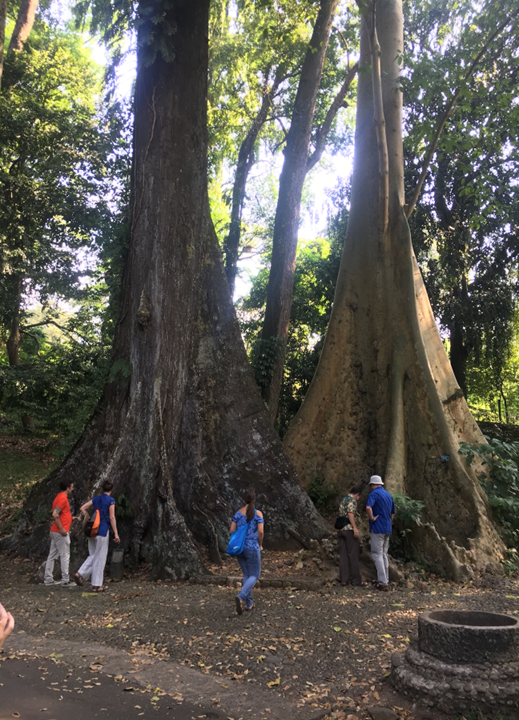Plants, People, Planet Special Issue - Released
-
Region
Global -
Programme
Global Tree Assessment -
Workstream
Addressing Global Challenges -
Topic
Tree Conservation -
Type
News -
Source
BGCI
News published: 21 June 2023
The Plants, People, Planet Special Issue has been released, featuring thirteen articles highlighting the impact of the Global Tree Assessment.
Trees are of exceptional ecological importance, playing a major functional role in the world’s ecosystems, while also supporting many other plants, animals and fungi. Through the Global Tree Assessment, we are gaining a comprehensive understanding of the threat status of trees, allowing us to prioritize conservation efforts. Released today, the new special issue of Plants, People, Planet showcases this.
This special issue features thirteen articles from IUCN/SSC Global Tree Specialist Group Members and Global Tree Assessment partners. Guest edited by Charles Cannon (Morton Arboretum), Anurag Dhyani (GTSG member), Chen Jin (Xishuangbanna BG) and BGCI’s Malin Rivers, the articles in this special issue provide a multi-faceted view of the impact of the Global Tree Assessment, the implication of results, and an evaluation of future steps and challenges.
The special issue includes investigations at different geographic scales, from country-level assessments to a single protected area. National assessments for Papua New Guinea (Barstow et al. 2022), Mexico (Samian et al. 2022), Colombia (Lopez-Gallego & Morales-Morales, 2023) and the US (Carrero et al. 2022) are presented alongside an analysis of the current state of knowledge regarding the extinction risk to tree species in Malaysia (Chua et al. 2022). Rønsted et al. (2022) provide an assessment of the conservation status of trees in the Limahuli Valley on the Hawaiian Island of Kaua’I, and using the Global Tree Assessment framework developed a restoration plan for 11 endangered species.
Different taxonomic viewpoints are explored from taxonomic families to an assessment of the extinction risk of six under-studied genera with ethnobotanical uses (Hill et al. 2022). Linsky et al. (2022) compare the assessments and ex situ data over time for Magnoliaceae, while Erkens et al. (2022) examine the impact of human-induced change on Annonaceae. A method to address the challenge of evaluating the conservation status of species with limited data is presented by Verspagen and Erkens (2022).
Aligning with BGCI’s practical tree conservation work, two featured articles discuss the practical issues involved in the reintroduction and conservation of Critically Endangered tree species. Dhyani et al. (2022) discuss the reintroduction of Buchanania barberi a species endemic to the Western Ghats, known from just two remaining mature individuals, while Yang et al. (2022) provide a case study of how conservation research and techniques were used to rescue Acer yangbiense.
The special issue also features the ‘Scientists warning to humanity on tree extinctions’ (Rivers et al. 2022), highlighting how the loss of tree species will negatively alter the world’s ecosystems and livelihoods.
This journal showcases not only the assessment work of the Global Tree Assessment, but also shows the wider impact in restoration, conservation, and planning that this project has. Assessing species extinction risk is only the first step in conserving the world’s threatened trees and the ecological and economic roles they play.
About Plants, People, Planet
Plants, People, Planet is a multi-disciplinary Open Access journal, owned by the New Phytologist Foundation and published by Wiley. The journal publishes outstanding plant-based research in its broadest sense and celebrates everything new, innovative and exciting in plant-focused research that is relevant to society and people’s daily lives. The New Phytologist Foundation is an independent, not-for-profit organisation dedicated to the promotion of plant science.

Support BGCI
You can support our plant conservation efforts by sponsoring membership for small botanic gardens, contributing to the Global Botanic Garden Fund, and more!
Become a Member
Be part of the largest network of botanic gardens and plant conservation experts in the world by joining BGCI today!